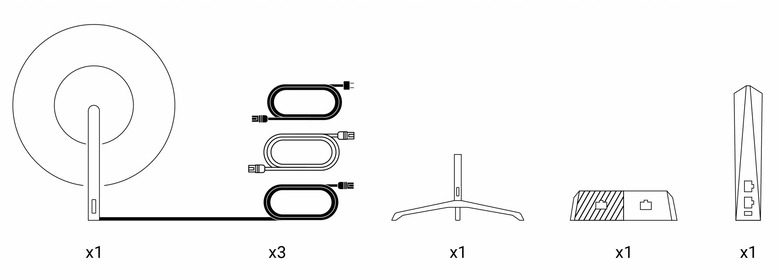SpaceX Starlink Beta Opens For $99 Reservations And Some Patience
SpaceX is opening up preorders for its Starlink beta, as the satellite internet service readies an expansion for those wanting to dump their ISP in favor of Elon Musk's orbiting constellation. A private Starlink beta opened up in mid-2020, with around 10,000 people currently using the service according to SpaceX's most recent announcement.
Now, though, that beta looks set to expand considerably. Starlink is now accepting applications – complete with a $99 reservation fee – more generally, though how soon you'll actually get service will depend on a number of factors.
You'll need to add your address when you fill in the application, as currently Starlink doesn't have service for every location in the US. That, as well as how quickly you sign up, will control how soon you might get onboarded, SpaceX says. The $99 reservation fee is refundable, and you'll get an email later on to confirm when the Starlink Kit is ready to ship.

That kit includes the Starlink dish and its mounting tripod, along with a WiFi router and power supply. There are also the necessary cables in the box, both to power the dish and to link it to the router which must be placed indoors. Starlink also offers an optional roof mounting kit.
The kit as a whole costs $499 in the US, plus $50 shipping and handling, though Starlink is also expanding the beta in the UK and Canada. Service is priced at $99 per month. Depending on where you're located, you may be waiting some time, too: 6+ months, SpaceX warns.
As for what you can expect, currently Starlink beta subscribers can expect to see data speeds 50Mb/s to 150Mb/s the company says, while latency might range from 20ms to 40ms in most locations. "There will also be brief periods of no connectivity at all," subscribers are notified, depending on the completeness of the satellite constellation. Currently, however, there are no data caps.

The system is designed to be as straightforward to set up as possible. The Starlink app – available for iOS and Android – walks through connecting the dish and WiFi router, and then helps the user orient it to ensure maximum line-of-sight with the satellite network. Currently, Starlink doesn't support moving the system to a new address, though in time that is expected to evolve. Still, for now anyway, if you were hoping to use Starlink on your RV and go off the grid, you'll be disappointed.
SpaceX recently launched a new cache of satellites to join the growing constellation. Currently it has more than 1,000 in place, though aims to increase that number more than tenfold by the time the system is complete.
